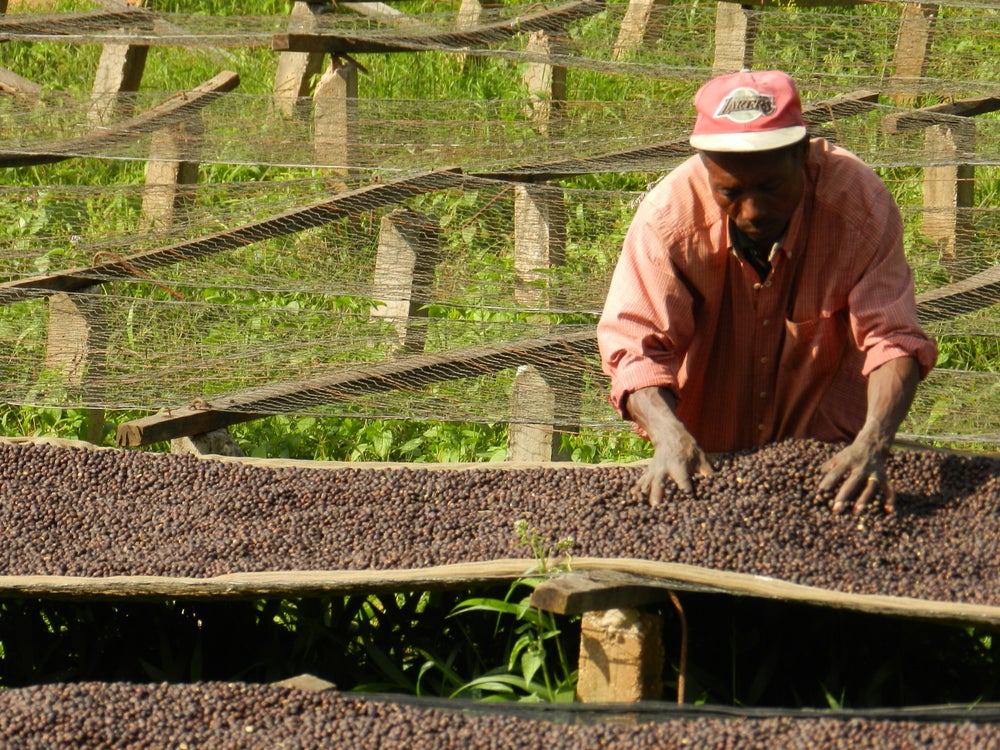From the Field, Resources for Roasters
Monday, May 16, 2022
Going on an Origin Trip? Read This!
As travel restrictions across the world are eased little by little, we are all looking forward to visiting our friends and partners in producing countries. Origin trips bring a multitude of benefits that range from learning more about the nuances of the supply chain to getting to know the people behind that fantastic coffee you just purchased, and more.

Get prepared for your next trip by downloading our helpful packing list
Some of you may be thinking about heading out to origin for the first time. A successful origin trip takes some preparation, so we brought both a seasoned and a new origin traveler together to discuss some of the best ways to prepare for an origin trip.
Danna Wasserman, Trader & Q Grader for Sucafina North America, has traveled extensively, especially in East Africa. She’s been to Kenya, Burundi, Colombia, Nicaragua and Rwanda and will soon go to Uganda, as well. David Gutmann, NA Finance Manager and Accountant, recently took his first trip to visit our operations and partner coffee farms in Colombia.
What are your essential “must pack” items?
Danna Wasserman: Mosquito spray in East Africa for sure. Also, sunscreen.
David Gutmann: Hiking shoes or shoes you aren’t afraid to get dirty or wet.
DW: Also, lightweight pants. Jeans are too heavy, and I just feel like I’m sweating, but leggings don’t feel right either. Hiking pants or other lightweight, breathable pants are the best choice.
What’s something you frequently forget or wish you had brought?
DW: A notebook and pen. I always think I can use my phone, but it always ends up feeling really rude in front of the farmers. Plus, autocorrect can mess up names and stuff. I actually bought a notebook and pen the last time I went to Kenya. Having a solid notebook and not losing it is the way to go.
Also, snacks. I always get really hungry when traveling and not eating enough. Trader Joe’s is my favorite place for good travel snacks. Sadly, that’s available only in the USA (truly sorry for the rest of you out there! But I’m sure you have your ‘go-to’ places!)
DG: Depends on the origin, I think. Colombia was higher altitude and much rainier. East Africa is much sunnier and drier, though it really depends on the season. So, doing your research about the climate and current weather conditions before you go so you know what to wear is really important. I forgot bug repellent and sunscreen, as Danna mentioned before.
DW: On that note, a hat and sunglasses since the sun can be really intense out in the field.
What’s something underrated that’s really helpful?
DW: I always like reading about the place before I go. I like picking up a book from an author from that country and trying to get a better sense of the place. That’s a good way to prepare.If you are visiting particular farms or washing stations that you have purchased from before (or are thinking about buying from!) it’s a good idea to read through the profiles supplied by your green trader. That will give you a running start.
DG: Bring a nice camera, if you have one. That’s valuable for everyone: roasters and importers.
How can travelers learn about the country they’re traveling to? What are some helpful resources?
DW: Reach out to whomever you’re going with about resources and reading materials. It’s helpful to communicate with the people you’re going with what your goals are for the trip. Maybe also asking what they think you can most get out of the trip.
I felt very supported by our origin teams on my travels. I’m really reliant on the people on the ground with first-hand knowledge. They help with all those types of coordination and details like in-country transportation and Covid tests. It’s so valuable to have someone to help you navigate it all. I feel like our origin teams are just awesome at that kind of stuff, and they’re happy to be the resource for us and our partners.
DG: I totally agree. I wouldn’t have been able to do the trip that I did without the origin team, mainly because I don’t speak Spanish very well. Having them translate and help me plan and get Covid tests and all those things was invaluable.
DW: That’s such a cool part of what Sucafina can offer versus some other companies. You’re going to be guided around the country by people who live there and know the country well and speak the languages and all that.
Anything else?
DW: Get comfortable with being uncomfortable. You’re going to have to eat food you may not be familiar with and be exposed to very different cultures. If you have food allergies or restrictions, it’s a really good idea to let your travel organizers know, too. That way they can plan ahead and do their best to meet your dietary needs. But ultimately, it’s important to realize a trip is just the jumping-off point to learn more about the coffee supply chain and maybe even get more involved in projects that will directly impact farmers and their communities.
DG: Have fun! It was so cool, I was able to pick cherry off the branch and even taste it. Making it a bit hands on (as long as the farmer and/or washing station managers are ok with it) was such an incredible experience. And I got to try other local fruits that were growing on the farm. Be open minded and be open to new experiences.
This is just a snapshot of the many ways you can prepare for an origin trip. Interested in going to origin? Have any questions? Don’t hesitate to get in touch with your trader to get all your questions answered.
Get prepared for your next trip by downloading our helpful packing list